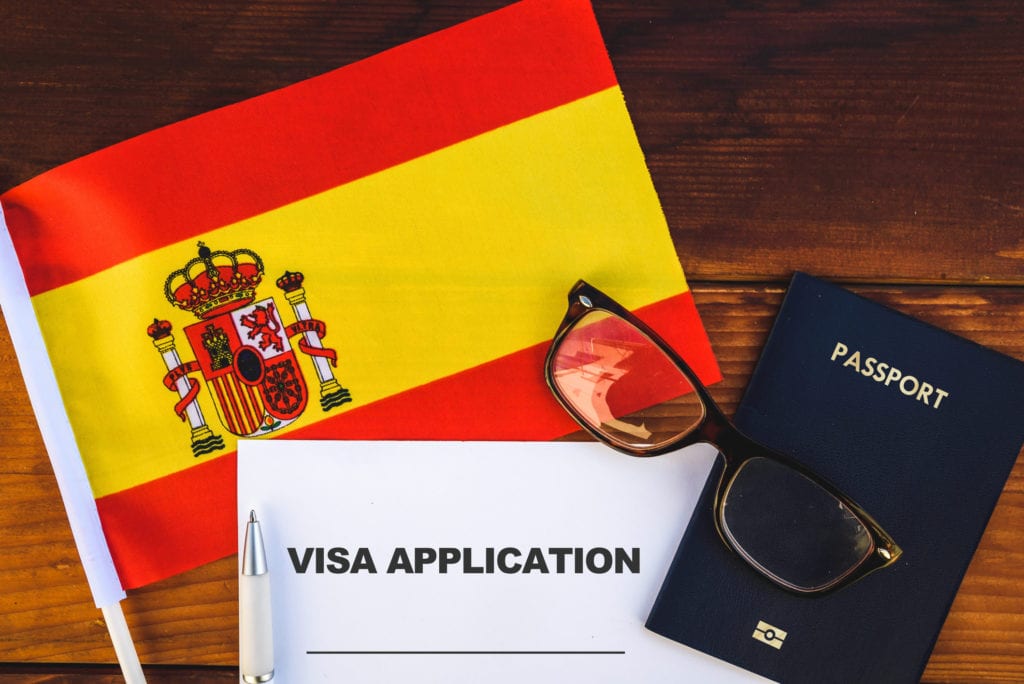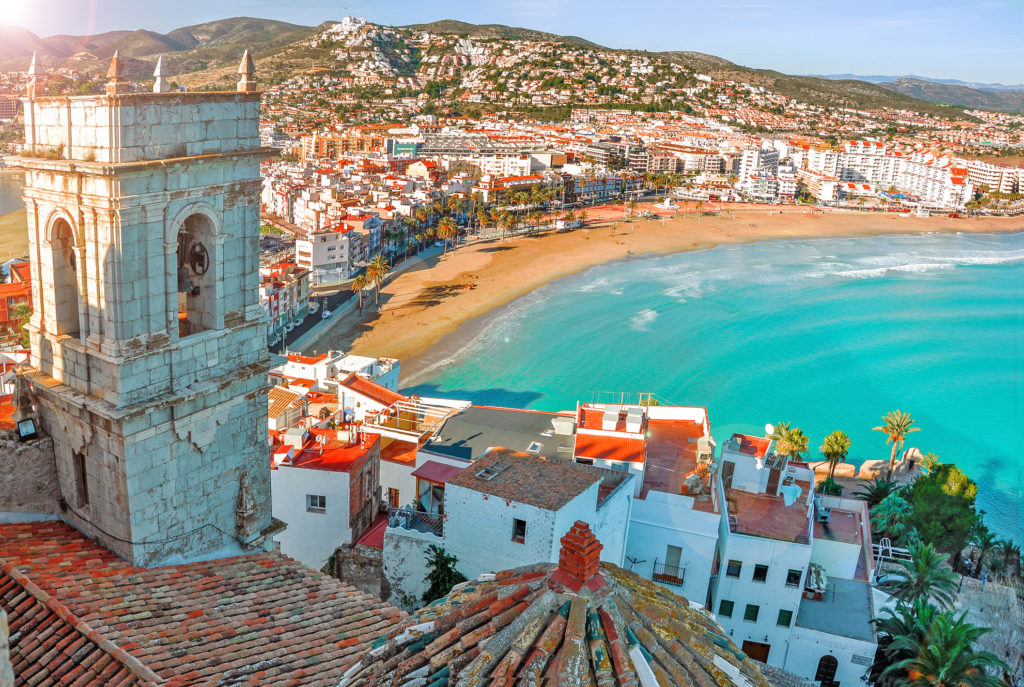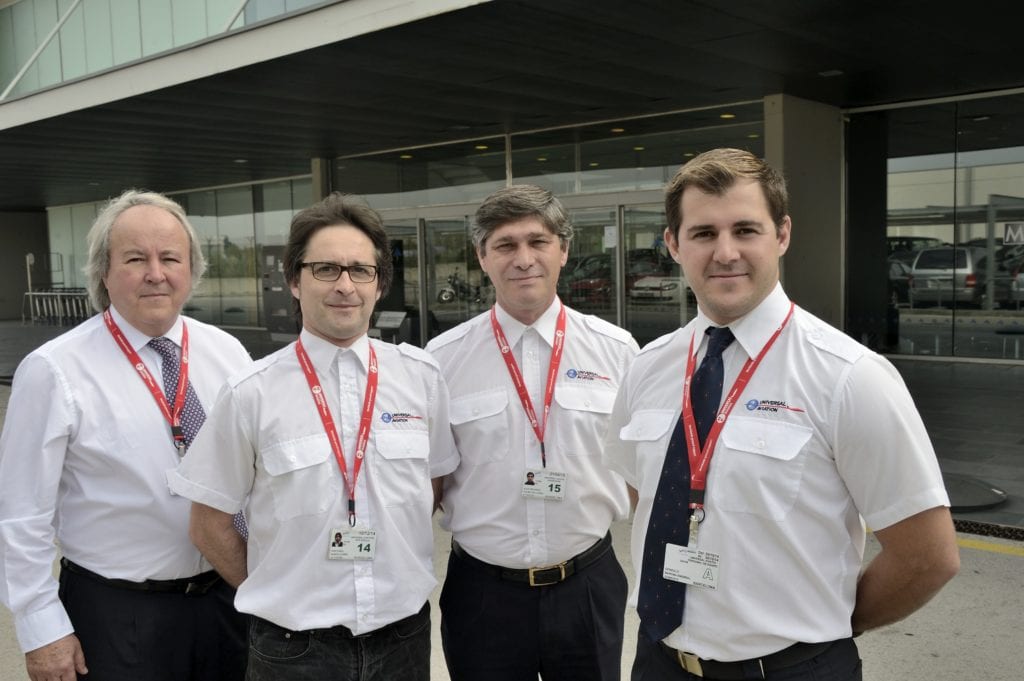Spain: 2025 Business aviation destination guide

Assuming that parking and hotel accommodations can be arranged at your destinations, Spain is a relatively friendly operating environment for business aviation, even during busier periods. The following is everything you need to know about operating to Spain.
Permits
Landing permits
Private flights do not require landing permits for operations to Spain, but charter movements by non-European Union (EU)-registered aircraft require permits. The Civil Aviation Authority operates Monday-Friday, 0900-2100 local, and is closed on weekends and holidays. When submitting all required documentation, plan on a minimum of four days’ advance notification to secure a landing permit for a first-time charter. Be mindful that a particular form must be filled out and submitted, along with appropriate documentation. Landing permits are required even for tech stops in Spain.
Permit documentation
Landing permit requirements for Spain depend on the number of operations a charter company makes to the country during an International Air Transport Association (IATA) season (winter/summer). For three or fewer charter operations per IATA season: operators must submit the application form and required documents. Required documents include:
- Air operator certificate
- Aircraft noise certificate
- Aircraft registration and airworthiness certificates
- Insurance certificate, including EU liability coverage for bodily injury to passengers, damage to baggage/cargo, and general 3rd-party liability
For four or more charter operations per IATA season: operators must submit additional documentation and be accredited by Spain’s Air Safety Agency. Additional documentation includes:
- Security plan to deal with acts of unlawful interference
- Letter of approval/acceptance of your security plan from the aeronautical authority of the aircraft registry
- Accreditation of your representative (ground handler) in Spain
Cabotage
In most cases, crew, including pilots, flight mechanics, and flight attendants, do not require visas for Spain as long as they have a valid passport and crew ID. Passengers, depending upon nationality, may require visas. Cabotage is not permitted for any charter (non-scheduled commercial) nor scheduled commercial flight. Many ramp inspections are done. If cabotage has been performed, significant fines may apply along with denial for future operations for a specified period
Customs
Customs and security clearance procedures are straightforward and user-friendly for operators arriving in Spain, from either inside or outside the Schengen area. It’s essential, however, to be aware of visa and documentation requirements as well as agricultural restrictions. Here are some tips to make your planning easier. Your ground handler will submit crew/passenger/aircraft details to authorities in advance and escort passengers/crew to either the GAT or main terminal for clearance.
Visas

In most cases, crew, including pilots, flight mechanics, and flight attendants, do not require visas for Spain as long as they have a valid passport and crew ID as long as they leave the country as crew if they plan to do a crew change and depart as a passenger on an airline flight VISA will be required (depending upon nationality). Passengers, depending upon nationality, may require visas. Some foreign nationals may obtain visas on arrival, while others must have visas issued in advance. In some cases, passengers who are staying no more than 24 hours in Spain will be issued a pass in place of the required visa. Always check with your ground handler or trip support provider before arrival on passenger and crew visa requirements and 24-hour pass options in the case of passengers. There are certain situations, depending upon the aircraft’s nationality, where police may be present plane-side to confirm documentation of all crew and passengers on arrival. Although this is not the norm, it can happen from time to time.
Documentation
You’ll need to provide crew and passenger manifest, valid passports for all onboard, and crew IDs for police clearance on arrival and departure. In some cases, passenger visas will be required, so they must be furnished at the time of clearance into the country. Technically, you’re required to provide completed arrival/departure cards for arrival/departure from Schengen and non-Schengen countries, and your ground handler can fill these out in advance. In many cases, however, airport police do not require these cards to be completed. Always check with your 3rd-party provider or ground handler in advance on the arrival/departure card requirements.
Agricultural considerations
Spain is refreshingly lenient in terms of arriving international food and in-flight catering items. Suppose you wish to bring in catering for the next leg of your travel. In that case, it’s best to communicate with a 3rd-party provider or ground handler, but it’s usually not an issue. Always check with your ground handler in advance for restrictions on bringing agricultural and other items into Spain. In-flight catering from international flights may not be brought into the country. Still, it may be kept, on a case-by-case basis, at the airport under the care of your ground handler. However, please check with the ground handler to ensure they have the space and refrigeration you may require for any perishable food items.
Pets
If you’re bringing a pet into Spain, it must have all vaccinations up to date and a health certificate. It’s best to send this information to your ground handler in advance to avoid delays on arrival. Special processes must be considered if you’re bringing weapons into the country.
Weapons
Hunting weapons may be permitted with prior arrangement. Personal protection weapons, silencers, and extended ammo clips will need to remain on board your aircraft or be stored at a specific location at the airport.
Flight planning
In Spain, flight plans must be filed via AFTN or SITA or in person with ATC.
There are no charges or fees for filing flight plans.
However, suppose you’re not using a 3rd-party provider or a ground handler (Main Airports it is mandatory to have a ground handler). In that case, the pilot will have to physically go to ATC and pay all arrival/departure fees before filing a flight plan. It’s more efficient to have a 3rd-party provider or ground handler do this.
Full credit will be extended for all the arrival/departure fees.
Non-European Union (EU) charter operators must have a landing permit before filing any flight plan, as they may be fined at Civil Aviation Authority’s (CAA) determination.
When the crew arrives at the airport in preparation for departure, the ground handler will have your flight plan, crew briefing, weather package, and confirmations of any in-flight catering and other requested services available.
If you are doing your own flight plan, advise the ground handler of this on arrival in order to make the appropriate arrangements. Whoever files the flight plan needs to ensure that the route is correct and accepted through Eurocontrol’s Network Management (NM). Madrid Control will keep flight plan information with ATC updated, but in many airports due to ECDM system, if you contact ATC more than 30 minutes before departure, they will not give you clearence authorization nor engine start up as that information will not be in their system yet.
If you choose to depart early, you’ll need to secure a new departure airport slot and re-file the flight plan. TCAS II and 8.33 KHz radio channel spacing above FL195 is required for all operations to Europe. Aircraft must be equipped and certified for reduced vertical separation minima (RVSM), and both pilots must be RVSM qualified.
Stage 2 aircraft are banned in Spain. If you’re operating a Stage 2 aircraft that’s been upgraded to Stage 3 standards, you must furnish appropriate documentation.
Be aware that airport authorities conduct random ramp checks to confirm that operators have correct aircraft and crew documentation.
Peak season

For Spain, Med-area destinations – such as Palma de Mallorca (LEPA), Ibiza (LEIB), Gerona (LEGE), Barcelona (LEBL), and Malaga (LEMG) – the high season is May-October and September-October. Madrid (LEMD) experiences a high season with elevated traffic levels in July and again in December-January. Hotels at popular locations in Spain fill up fast during the high season. Costs are higher, and extended cancellation policies are in place. If you’re looking for unique local transport options – an SUV or a stretch limo, for example – it’s best to make requests as soon as possible and expect there to be limited availability. Airports in Spain are secure, and all have cameras, police patrols, and security checkpoints. Hiring private guards to watch your aircraft airside is usually not an option, and, if allowed, the guard must be unarmed.
Tech stops
For tech stops in Spain, quick turns are possible within 25 to 45 minutes, depending upon the location. Best practice is to provide your ground handler with at least 24-hours advance notice and confirm that the fuel truck will be on standby for arrival. However, if shorter notice is given, the ground handler will try to accommodate all requests.
Cultural considerations
 The people in Spain are generally easygoing and helpful to visitors. For business meetings, the dress code is usually formal, and it’s normal to spend a few minutes talking about general items before starting a business meeting. Off-airport, petty crime, such as pickpocketing, may occur in downtown areas and at night throughout the city. Still, the situation is no worse than in other major cities in Europe. If this is your first trip to Spain, take the time to enjoy the local cuisine and culture. Spaniards eat a lot of seafood, such as lobsters, clams, and shrimp, and Spanish wines are some of the best in the world. Each city and region of Spain is unique. Opportunities to visit historic town centers, museums, and various castles should not be missed.
The people in Spain are generally easygoing and helpful to visitors. For business meetings, the dress code is usually formal, and it’s normal to spend a few minutes talking about general items before starting a business meeting. Off-airport, petty crime, such as pickpocketing, may occur in downtown areas and at night throughout the city. Still, the situation is no worse than in other major cities in Europe. If this is your first trip to Spain, take the time to enjoy the local cuisine and culture. Spaniards eat a lot of seafood, such as lobsters, clams, and shrimp, and Spanish wines are some of the best in the world. Each city and region of Spain is unique. Opportunities to visit historic town centers, museums, and various castles should not be missed.
Universal Aviation Spain can help

Universal Aviation has had a presence in Spain for more than 40 years. We are proud to be one of the handling companies with more locations in the country, currently serving at 10 locations, such as Malaga, Girona, Barcelona, Sevilla, Jerez de la Frontera, Almeria, Menorca, Granada, Ciudad Real and Madrid. We also provide on-airport supervision at destinations across Spain. More information and team contact info is available on our website.




